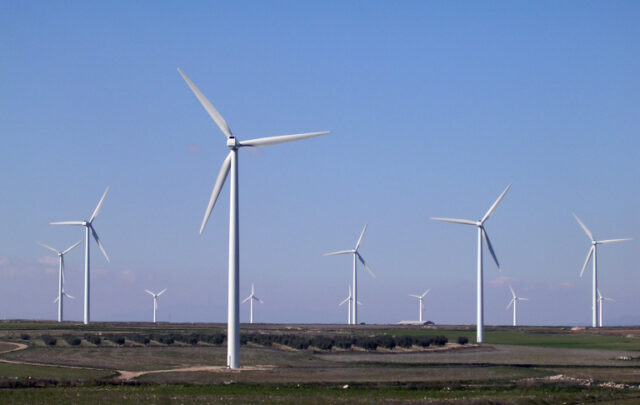Click on the headline (link) for the full text.
Many more articles are available through the Energy Bulletinhomepage
Russian professor predicts end of U.S.
Andrew Osborn, Wall Street Journal
In Moscow, Igor Panarin’s Forecasts Are All the Rage; America ‘Disintegrates’ in 2010
—
For a decade, Russian academic Igor Panarin has been predicting the U.S. will fall apart in 2010. For most of that time, he admits, few took his argument — that an economic and moral collapse will trigger a civil war and the eventual breakup of the U.S. — very seriously. Now he’s found an eager audience: Russian state media.-
… Prof. Panarin, 50 years old, is not a fringe figure. A former KGB analyst, he is dean of the Russian Foreign Ministry’s academy for future diplomats. He is invited to Kremlin receptions, lectures students, publishes books, and appears in the media as an expert on U.S.-Russia relations.
… Mr. Panarin posits, in brief, that mass immigration, economic decline, and moral degradation will trigger a civil war next fall and the collapse of the dollar. Around the end of June 2010, or early July, he says, the U.S. will break into six pieces — with Alaska reverting to Russian control.
… Mr. Panarin’s apocalyptic vision “reflects a very pronounced degree of anti-Americanism in Russia today,” says Vladimir Pozner, a prominent TV journalist in Russia. “It’s much stronger than it was in the Soviet Union.”
Mr. Pozner and other Russian commentators and experts on the U.S. dismiss Mr. Panarin’s predictions. “Crazy ideas are not usually discussed by serious people,” says Sergei Rogov, director of the government-run Institute for U.S. and Canadian Studies, who thinks Mr. Panarin’s theories don’t hold water.
… [Mr. Panarin] based the forecast on classified data supplied to him by FAPSI analysts, he says. He predicts that economic, financial and demographic trends will provoke a political and social crisis in the U.S. When the going gets tough, he says, wealthier states will withhold funds from the federal government and effectively secede from the union. Social unrest up to and including a civil war will follow. The U.S. will then split along ethnic lines, and foreign powers will move in.
California will form the nucleus of what he calls “The Californian Republic,” and will be part of China or under Chinese influence. Texas will be the heart of “The Texas Republic,” a cluster of states that will go to Mexico or fall under Mexican influence. Washington, D.C., and New York will be part of an “Atlantic America” that may join the European Union. Canada will grab a group of Northern states Prof. Panarin calls “The Central North American Republic.” Hawaii, he suggests, will be a protectorate of Japan or China, and Alaska will be subsumed into Russia.
(29 December 2008)
Activist Jan Lundberg is floating an idea to Dissolve the U.S. (an Option for Proactive Change before Collapse).
The upside of downward mobility
Matt Miller, Fortune via CNN Money
Americans have long assumed that our kids will earn more than we do. That’s colliding with harsh economic realities but it doesn’t mean the good life is gone. An exclusive book excerpt.
—
… we have to face a new reality. As many as 100 million Americans now live in families that are earning less in real terms than their parents did at the same age.
The rise of such developing economies as China and India means the earnings picture is only likely to get worse. One in three American jobs may be exposed before long to competition from workers overseas, putting an effective wage cap on large swaths of employment even if jobs don’t actually move offshore.
New research also shows that, contrary to popular myth, upward mobility is now lower in the U.S. than in many European countries. People sense what’s unfolding, even if it remains politically taboo to say so.
… Why do Americans think a better standard of living for their children is a national birthright? Because this remarkable pattern has largely been our experience since the nation’s earliest days. The new republic’s official policy of classlessness and ethic of equal opportunity made it unique in history. In short, America was about upward mobility, the chance to rise from the station into which you were born to whatever heights your talents and efforts might let you attain. This helps explain why America came to lead the world in mass education. Yet all this individual opportunity might have meant little had America’s early years not coincided with the kickoff of the Industrial Revolution. This made the idea of economic progress something that applied on a grand scale, not just to particular people with moxie and drive.
… The impact has been profound, and largely positive. Our “can do” spirit and “anything is possible” determination tamed the frontier, helped win two world wars, invented countless technologies, and put a man on the moon. But the way our success mutated over time into the expectation that our kids would always do even better has created three problematic ways of thinking:
The first is that we’ve overestimated the power of the individual to shape his own economic destiny.
… The second problematic way of thinking is what the author and Washington Post columnist Robert Samuelson has called America’s sense of “entitlement.
… There’s a third worrisome attitude traceable to our faith that the kids will earn more than we do. This is the imprudent conviction that we can live beyond our means, because somehow we’ll earn enough later to deal with any problems.
… These habits of mind leave us ill-equipped to cope with the economic realities we now face.
… So what will these new circumstances mean for individuals and the country? The answer will turn on the way the new downward mobility affects Americans’ attitudes toward the role of government.
Public opinion surveys have long shown that Americans see themselves as authors of their economic fate, while Europeans tend to believe that forces outside the individual’s control have greater influence. Yet the forces that are now undermining upward mobility in America are in fact largely outside people’s control.
(29 December 2008)
Obama for America 2.0? (Net Movement)
Ari Melber, The Nation
… Top-down legislative advocacy, however, is not the only aspiration for members of Obama’s network. The campaign thrived on bottom-up participation, with volunteers taking charge of projects, organizing themselves and sometimes challenging Obama’s positions. “There’s been a lot of hand-wringing about what Obama is going to do with his e-mail list, but that has it a bit backward,” says David Dayen, who writes the progressive blog D-Day. “It’s really, What is the list going to do with Obama?” Marshall Ganz, the famed United Farm Workers organizer who advised the Obama and Dean campaigns, also argues that the network should not be treated as a list to be managed. Obama won “through the creation of a movement,” Ganz observed in a recent YouTube interview, but that does not mean its members can be directed from Washington. “Can he lead it from the presidency?” Ganz asked. “Probably not.”
Yochai Benkler, who wrote the Internet bible The Wealth of Networks, is advocating an empowered civic activism for the Obama era. At a December summit for Internet politics at Harvard, where he and Ganz teach, Benkler warned the Obama staff in attendance to avoid focusing solely on “mobilization for the next battle.” Now there is a special opportunity, he stressed, to serve the “core of democracy” by fostering relevant “participatory forums for people to set their own agenda.”
This vision is more ambitious than responding to surveys or submitting questions to the administration. To shift presidential priorities, network activists must by definition reach beyond the boundaries of the incumbent agenda. Obama’s supporters will have to decide whether fulfilling the movement sometimes means pushing the president, or if such efforts will always be degraded as “counterproductive” by the narrow metrics of tactical politics. In other words, are any issues bigger than Obama?
“Obama’s technologically networked supporters are unlikely to desert him or pressure him very hard, wanting so much to believe that the ‘change’ mantra will mean something other than swapping Hillary for Condi,” predicts John Stauber, a netroots activist and critic. “While Obama became the candidate of choice for most on the left, the fact that he is well to the right of his supporters remains a challenge to his base.”
One precedent for more participatory agenda-setting occurred this past summer, when Obama backed Bush’s domestic-spying bill. Supporters used Obama’s social networking portal to protest the move. Thousands of activists discussed the issue through direct e-mails, thanks to the campaign’s tools, and they developed goals together. The protest swiftly became the largest self-organized group on the site at the time. That growth, in turn, drew widespread attention and a direct response from Obama, sans media filter, to his critical supporters. While he did not change his vote, the effort clearly forced a civil liberties argument onto the agenda–a result that formal, funded organizations often fail to achieve.
(23 December 2008)
A number of calls have been made from within the peak oil community to lobby Obama on energy policy. Is change from the netroots possible? The answer is ambiguous. -BA
Related from Politico: Will MoveOn live up to its name?:
After more than a decade spent railing against the Republican machine, MoveOn wants to move on —even if it means leaving some of its high-minded ideals behind.
Last week, the group’s members chose their top four priorities for the organization, winnowed down from a top-10 list culled from 50,000 suggestions. The decisions they weighed would determine in large part whether the group would become a friend or foe of the Obama administration, a player or a gadfly in progressive politics, a piece of the Democratic machine or a thorn in the party’s side.
What they chose: universal health care; economic recovery and job creation; building a green economy/stopping climate change; and end the war in Iraq.
What they didn’t: holding the Bush administration accountable; fighting for gay rights and LGBT equality; and reforming campaigns and elections.
MoveOn Executive Director Eli Pariser says that this happy alignment with Barack Obama’s agenda — and fortuitous absence of conflict with same — comes in part because “the people he’s listening to and the people we’re listening to are the same people.”
Drillers eye oil reserves off California coast
Jane Kay, San Francisco Chronicle
The federal government is taking steps that may open California’s fabled coast to oil drilling in as few as three years, an action that could place dozens of platforms off the Sonoma, Mendocino and Humboldt coasts, and raises the specter of spills, air pollution and increased ship traffic into San Francisco Bay.
… The bans that protected both of the nation’s coasts beginning in 1981, from California to the Pacific Northwest to the Atlantic Coast and the Straits of Florida, ended this year when Congress let the moratorium lapse.
President-elect Barack Obama hasn’t said whether he would overturn President Bush’s lifting last summer of the ban on drilling, as gas prices reached a historic high. Sen. Ken Salazar, D-Col., Obama’s pick as interior secretary and head of the nation’s ocean-drilling agency, hasn’t said what he would do in coastal waters.
(29 December 2008)





